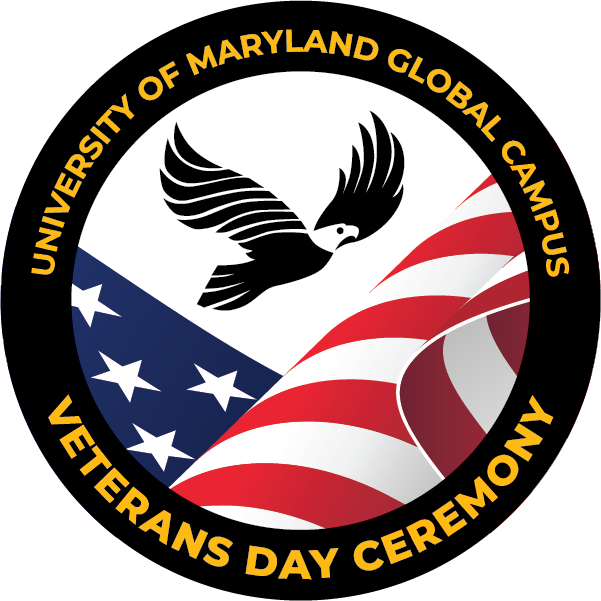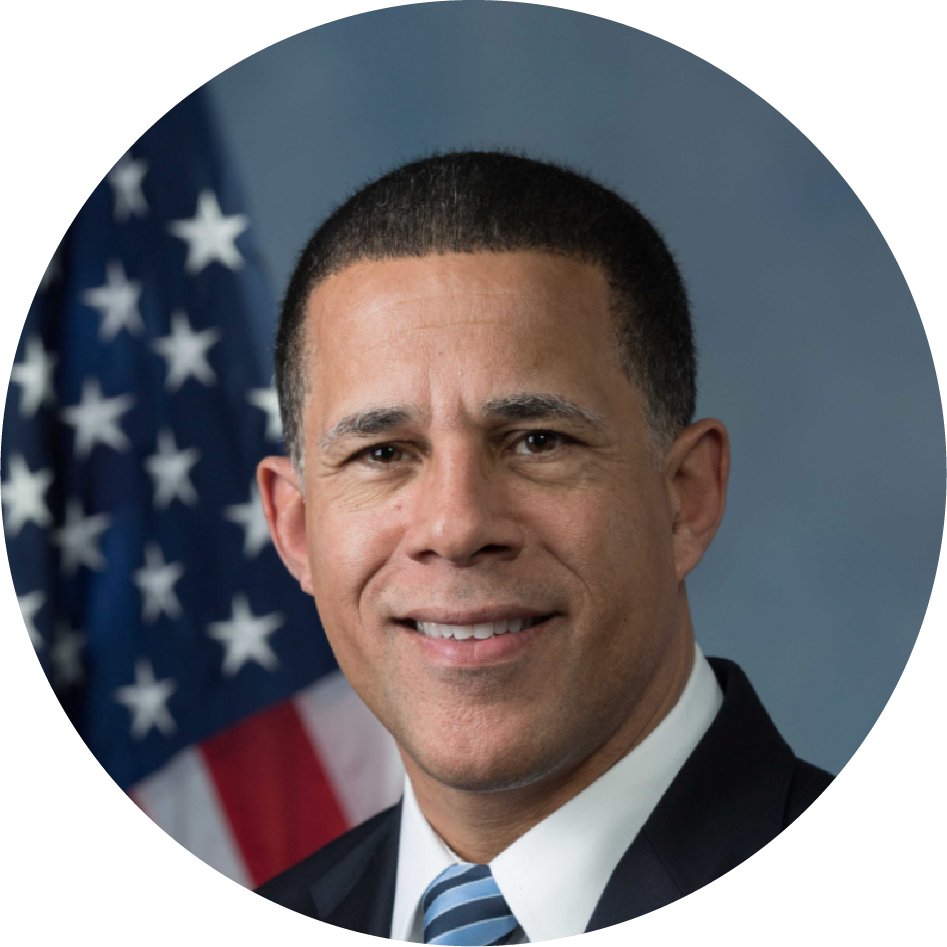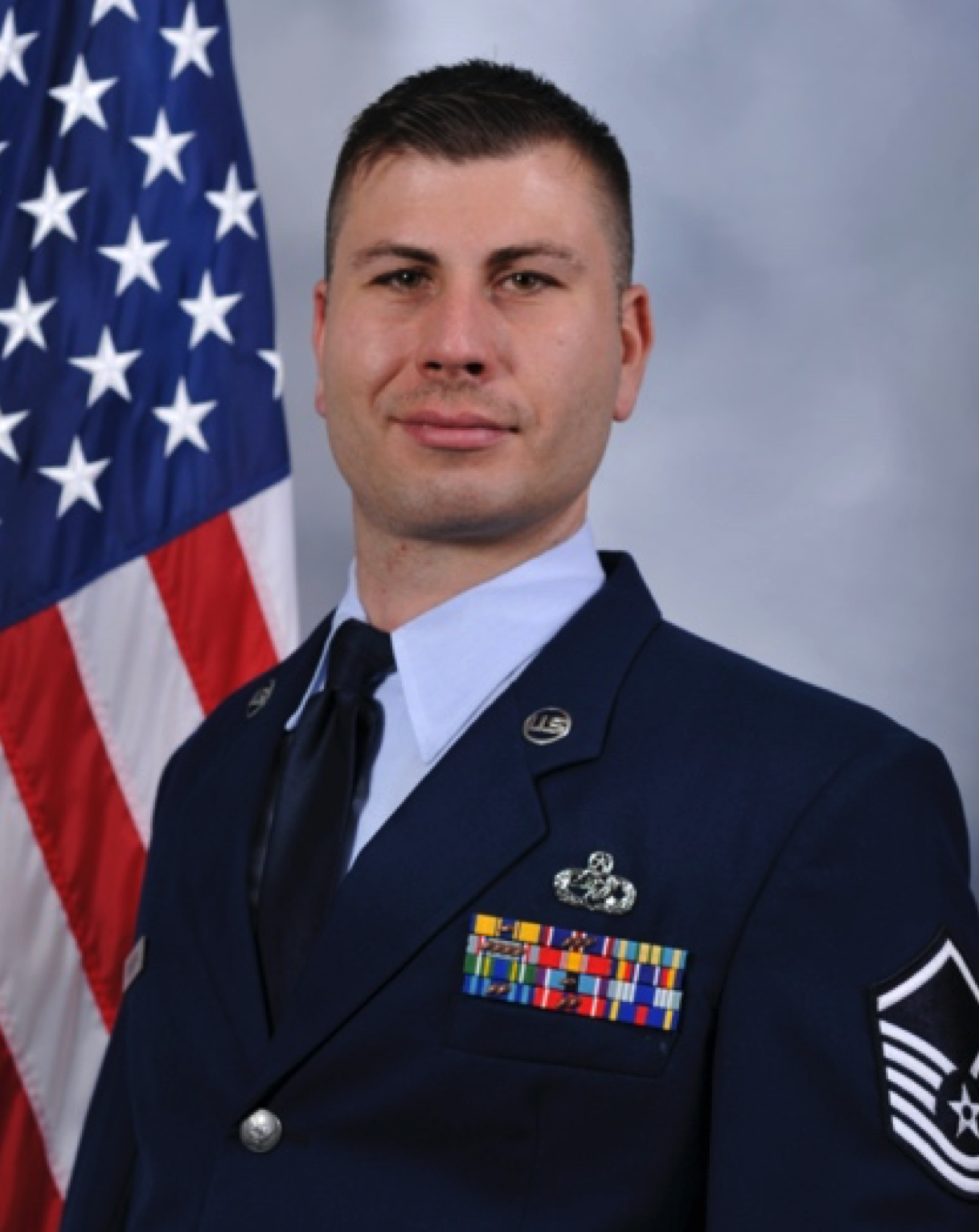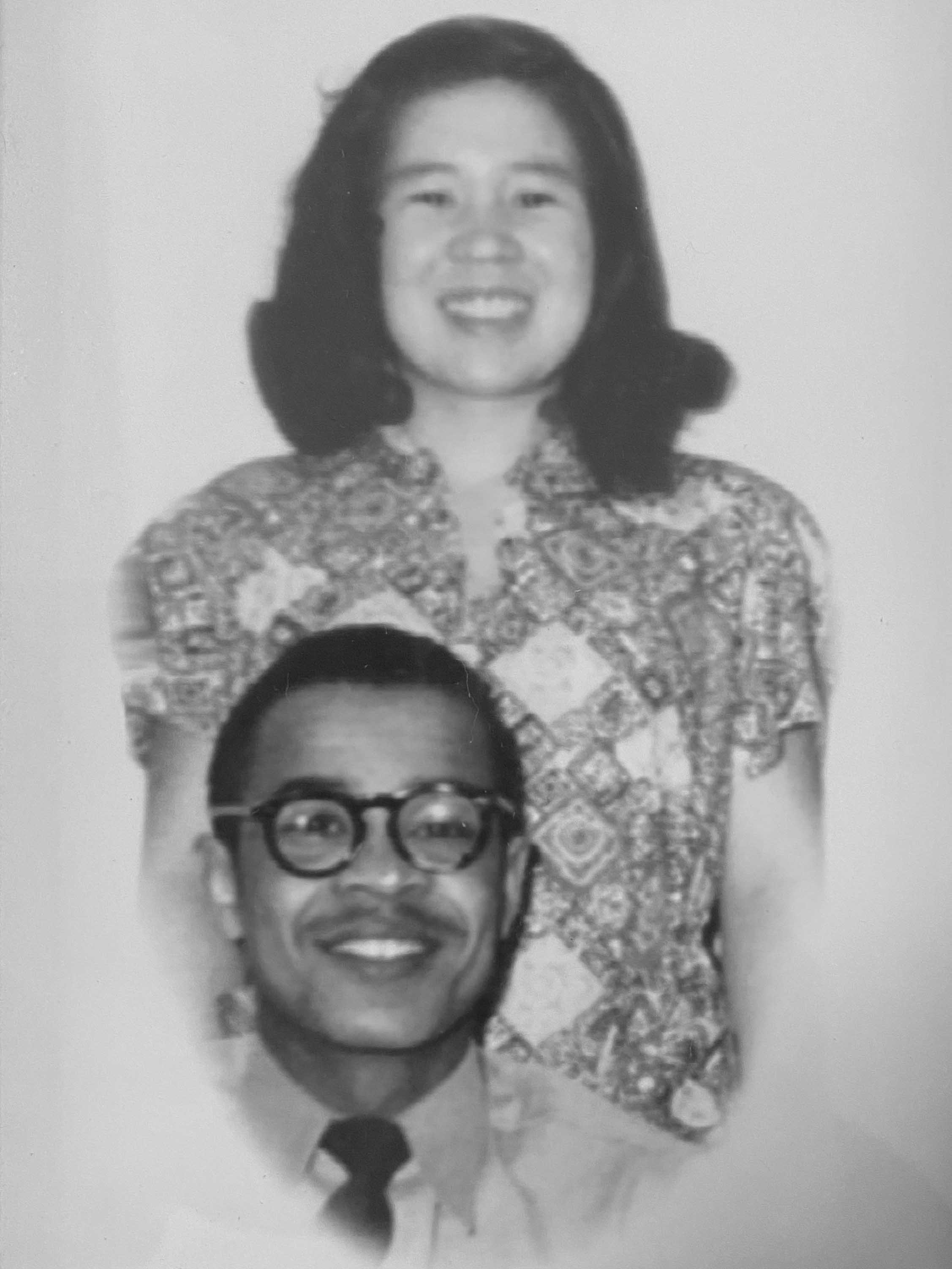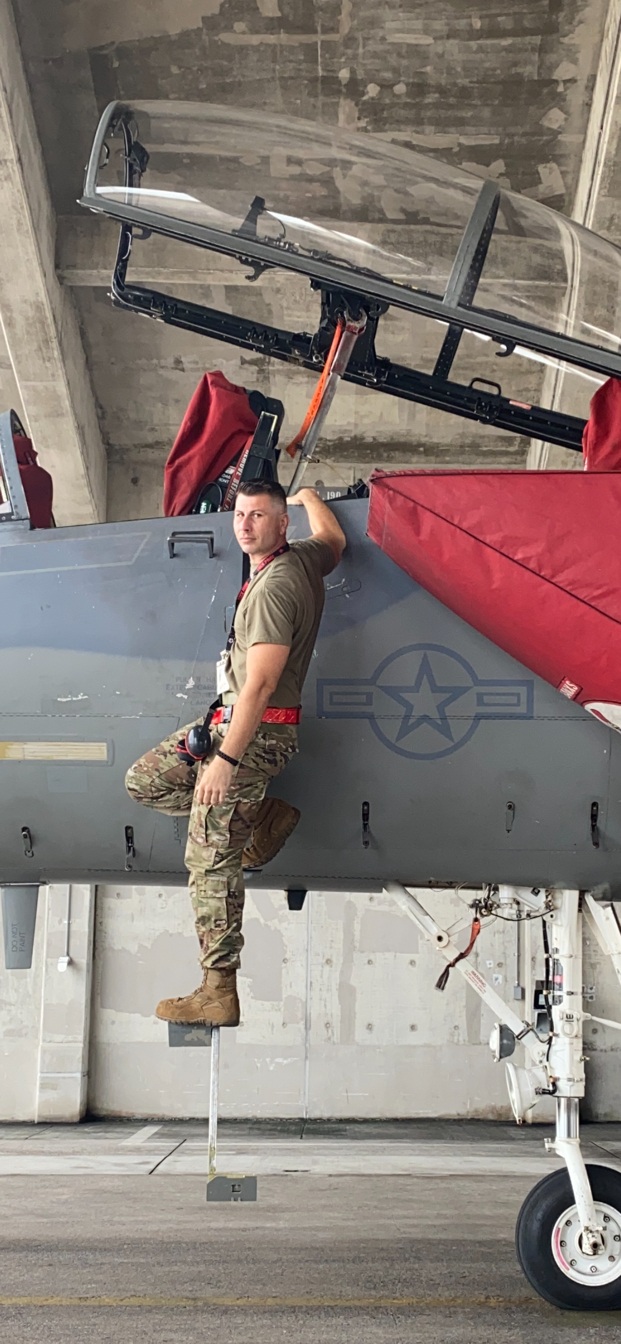The Honorable Anthony G. Brown
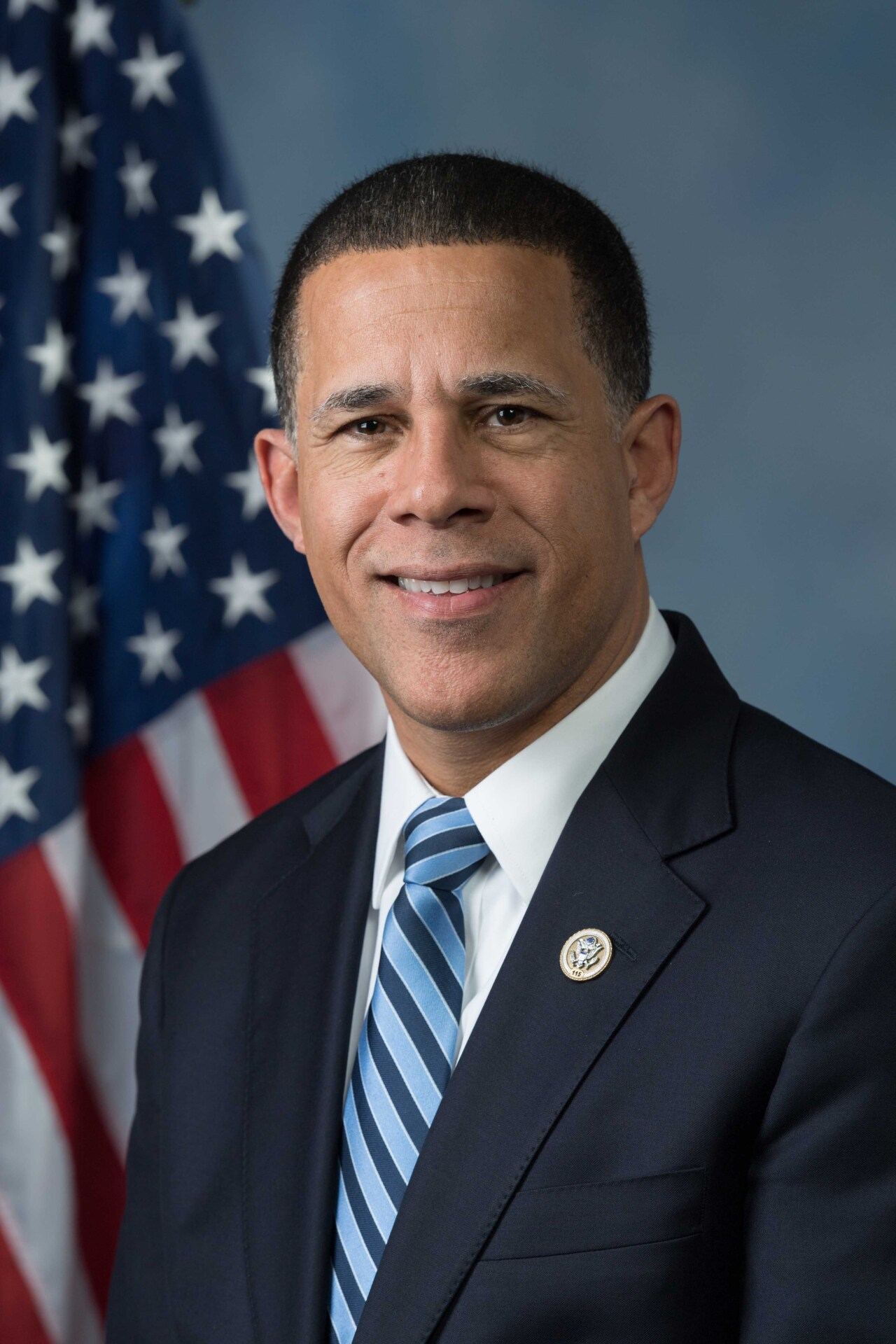
A retired Colonel in the United States Army Reserve, Congressman Brown’s military record spanned more than a quarter century as an aviator and JAG officer, during which time he graduated first in his flight class and received both Airborne and Air Assault qualifications. Congressman Brown was awarded the Legion of Merit for his distinguished military service. In 2004, he was deployed during Operation Iraqi Freedom, earned a Bronze Star, and became one of the nation’s highest-ranking elected officials at that time to serve a tour of duty in Iraq.
In 1998, Congressman Brown was first elected to the Maryland House of Delegates to represent Prince George’s County. He went on to serve eight years as Lt. Governor where he focused on higher education, economic development, healthcare, domestic violence and foster care.
Congressman Brown graduated Harvard Law School in 1992, and then went on to clerk for the Honorable Eugene Sullivan, Chief Judge on the US Court of Appeals for the Armed Forces. He was an associate attorney in the litigation and securities practice groups in the Washington, DC office of Wilmer Hale, and later practiced zoning and land use law with the Maryland firm of Gibbs and Haller.
Congressman Brown graduated Harvard College with honors and a degree in Political Science. He and his wife Karmen reside in Prince George’s County.
Master Sergeant Joseph Cabrera (U.S. Air Force)
Major General Lloyd “Milo” Miles (U.S. Army, Retired)
VETERANS DAY 2020
(A Personal Reflection)
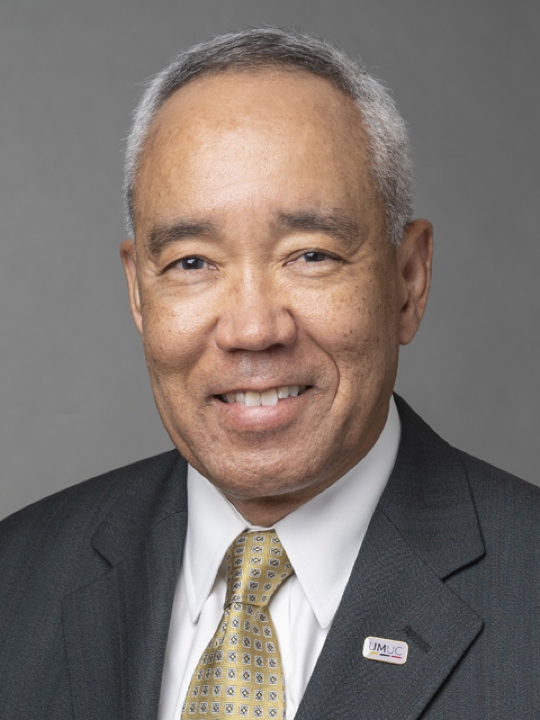
75 years ago, in August of 1945, the weapons of war fell silent in the bloodiest conflict in
human history. The surrender of Japan on August 14th, after the use of atomic weapons on
Hiroshima and Nagasaki, was celebrated around the world as V-J Day, or Victory over Japan
Day. Almost three weeks later, on September 2nd, the formal surrender would be signed
aboard the battleship Missouri, officially bringing the war to an end.
Whenever I think of World War II, I don’t think about the larger-than-life characters idealized by
Hollywood. Instead, I think of my parents. Both of them were young adults during WWII. My
father was a scared young soldier who, when the war started, had never been beyond the
borders of his state. He never wanted to serve in the military, but like many young men of his
generation, he was drafted into the Army to fight overseas. His unit was preparing for the
invasion of Japan when the atomic bombs were dropped. After the Japanese surrender, my
father’s unit became part of the U.S. occupation forces in Japan.
My mother was a scared young woman in her late teens just trying to survive the war as a
Japanese civilian. When American bombers flew overhead, she would run into the fields with
her parents and siblings to get away from the buildings. Wartime shortages throughout the
Japanese economy made every day a struggle for survival. Her oldest brother, a Japanese
officer, would be killed fighting against the Americans in the Philippines. Her aunt would be
killed by the atomic bomb dropped on Hiroshima, and her cousin would die with the bomb
dropped on Nagasaki.
Somehow, through the turmoil, heartache, and aftermath of war, my mother and father would
find each other, fall in love, and eventually get married. My mother’s family would disown her.
For more than 20 years, her family never communicated with her—not one letter or phone call.
It wasn’t much better for my father, whose family could not understand how he could marry
“the enemy,” even after the war.
During her first couple of decades in the U.S., my mother would endure hatred from Americans
who lost love ones fighting against the Japanese in WWII, as well as from Americans who had
relatives fighting in Korea, and later, fighting in Vietnam. Unfortunately, to most Americans,
there was no difference between the Asian people from these different countries. My father
would fight for this nation again during the wars in Korea and Vietnam. Back home in America,
he would fight for his dignity as he confronted racism and discrimination everywhere he went.
Through it all, my parents never lost faith in America. My mother only had a high school
education, but she understood the value of higher education. She believed that, with education
and hard work, someday, life would be different for her eight children.
Every day she would tell us, “Study hard. Don’t quit. You can do it.” Likewise, my father never
stopped believing in the potential and promise of America. He believed America was imperfect,
but it was worth fighting for—not for his sake, but for the sake of his children. Even as a feeble
old man, when he could no longer walk on his own, he kept an old uniform hanging in his
closet. When I asked him why, he said he wanted to be ready if “Uncle Sam” ever needed him
again.
My parents would remain married for 65 years until my mother passed away from Alzheimer’s
and dementia. My father would pass away two years later. Sometimes I wish they could see
how things worked out for their children. I wish I could tell them that America is better as a
nation because they believed and never gave up. In many ways, they believed more in America
than America believed in itself.
Many of you have similar stories of family struggles and hardship—of relatives who have
proudly served this country. As a nation, we are blessed to still have veterans in our midst who
were part of the “Greatest Generation” and who participated in the desperate battles of the
Second World War; and veterans who fought in the frozen hills of Korea and slogged through
the oppressive, jungle heat of Vietnam. We are also blessed to have veterans who stood as
lonely sentinels on the frontiers of freedom during the long years of the Cold War, as well as
veterans who fought in Grenada, Panama, Somalia, Kuwait, and now, Iraq and Afghanistan.
If there is one concept that unites them all, regardless of their generation, it is their
commitment to something bigger than themselves—a belief that America, with all of its warts
and bruises, is still a country worth fighting for. This Veterans Day, whether you celebrate it
solemnly or festively, please take a moment to remember those men and women who have
worn the uniform of this nation throughout its history. It is a privilege to serve them and an
honor to serve beside you. Thank you.
MG(R) Lloyd “Milo” Miles
SVP, Global Military Operations

